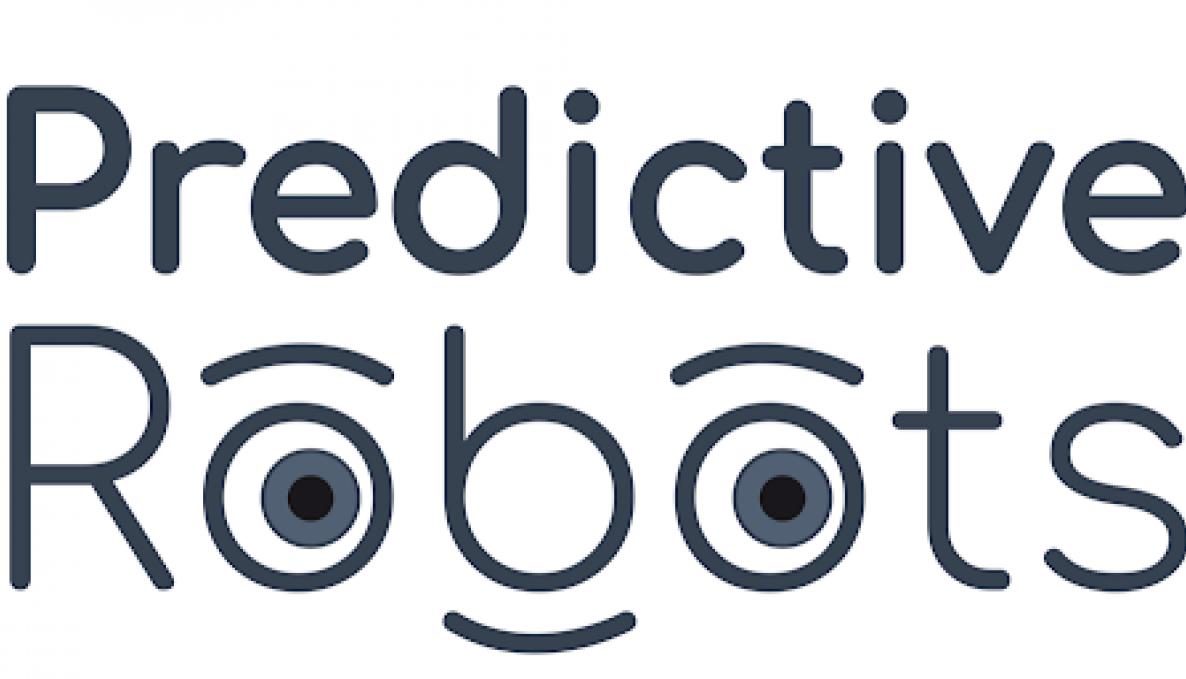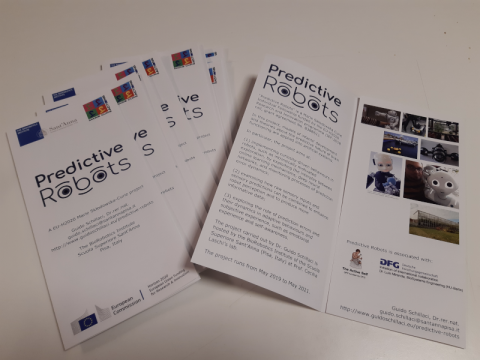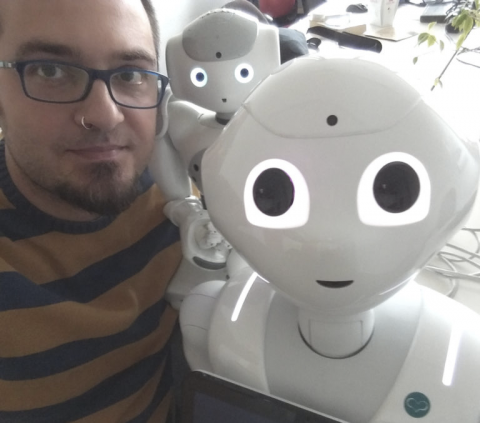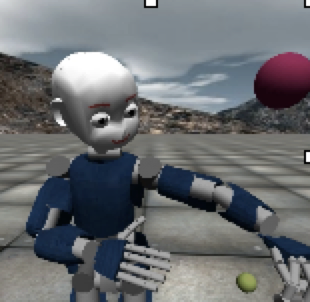Predictive Robots
Models of infant development and of predictive processes to improve different robot capabilities

Empirical evidence suggests that capabilities such as motor control, learning, perception, and even subjective and emotional experiences may rely on processes of anticipation of sensorimotor activity implemented by our brains. Predictive Robots applies models of infant development and of predictive processes to improve different robot capabilities. First, it researches learning mechanisms producing novelty-seeking exploration behaviours in robots. Implemented by means of online machine learning techniques, deep neural networks and self-regulatory processes, these mechanisms enable the unsupervised and incremental learning of predictive internal models in different artificial systems. Second, Predictive Robots studies how to enhance robot perception by combining raw sensory inputs with the predictions generated by such models. Finally, it studies the role of sensory anticipation and attenuation also in self-perception, thus contributing to the understanding of subjective experience in humans and in its possibility in robots.
BUDGET: € 183,473.28
PERIOD: May 2019 - May 2021
MSCA FELLOW: Dr. Guido Schillaci
SUPERVISOR: Prof. Cecilia Laschi
Short CV of the Marie Sklodowska-Curie fellow
Guido is a MSC fellow based at SSSA. Computer engineer by background (Palermo, Granada), he obtained a PhD on cognitive and developmental robotics at the Humboldt-Universität zu Berlin, funded by another Marie Curie action (EU-FP7 ITN INTRO). During his PhD studies, he spent a secondment at Umeå Universitet, Sweden, and collaborated with Space Application Services in Belgium. Before joining SSSA, Guido was awarded with a Humboldt post-doc scholarship (German Excellence Initiative) and worked in the EU-FP7 EARS, EU-H2020 ROMI and other projects funded by the German DFG. Currently, Guido is associated to the DFG SPP The Active Self and is guest PI in a DFG-funded collaboration on Adaptive architectures for transferring greenhouse models, hosted by Prof.Miranda, HNEE Eberswalde.
Guido has authored +40 peer-reviewed papers on the topic of cognitive and developmental robotics, AI, human-robot interaction and computational neuroscience. He has co-supervised +10 B.Sc., M.Sc. and Ph.D. students, and taught B.Sc. and M.Sc. courses on embodied AI, cognitive robotics and programming. He has served as editor, programme committee member, reviewer for several conferences and journals, as well as evaluator of international research grant applications, and has organised workshops and scientific events on topics related to his research.
Publications
- Schillaci, G., Ciria, A., Lara, B., (2020) Tracking Emotions: Intrinsic Motivation Grounded on Multi-Level Prediction Error Dynamics. 10th Joint IEEE International Conference on Development and Learning and on Epigenetic Robotics (IEEE ICDL-EpiRob). Pre-print available here: https://arxiv.org/abs/2007.14632.
- Kirtay, M., Albanese, U., Vannucci, L., Schillaci, G., Laschi, C., & Falotico, E. (2020). The iCub multisensor datasets for robot and computer vision applications. Proceedings of the 22nd ACM International Conference on Multimodal Interaction (ACM ICMI). arXiv preprint arXiv:2003.01994.
- Hafner, V. V., Loviken, P., Pico Villalpando, A., Schillaci, G. (2020). Prerequisites for an Artificial Self. Frontiers in Neurorobotics. Vol. 14, p.5. doi:10.3389/fnbot.2020.00005. ISSN 1662-5218.
- Schillaci, G., Pico, A., Hafner, V.V., Hanappe, P., Colliaux, D., Wintz, T., (2020) Intrinsic motivation and episodic memories for robot exploration on high-dimensional sensory spaces. Sage Journal on Adaptive Behaviour, pre-print: https://arxiv.org/abs/2001.01982.
- Miranda, L., Schillaci, G. (2019) Adaptive architecture towards portability of greenhouse models, Proceedings of Greensys 2019 (Acta Horticulturae) – Int. Symposium on Advanced Technologies and Management for Innovative Greenhouses, Angers, France. Pre-print available here: https://arxiv.org/pdf/1908.01643.pdf
- Georgie, Y. K., Schillaci, G., Hafner, V. V. (2019) An interdisciplinary overview of developmental indices and behavioral measures of the minimal self, Proceedings of the 9th Joint IEEE International Conference on Development and Learning and on Epigenetic Robotics (IEEE ICDL-EpiRob). Oslo, Norway. NOMINEE FOR BEST PAPER AWARD. Pre-print available here: https://arxiv.org/abs/1907.00709.
- Pico Villalpando, A., Schillaci, G., Hafner, V. V., Lara, B. (2019), Ego-Noise Predictions for Echolocation in Wheeled Robots, MIT Press Proceedings for the Artificial Life conference.



